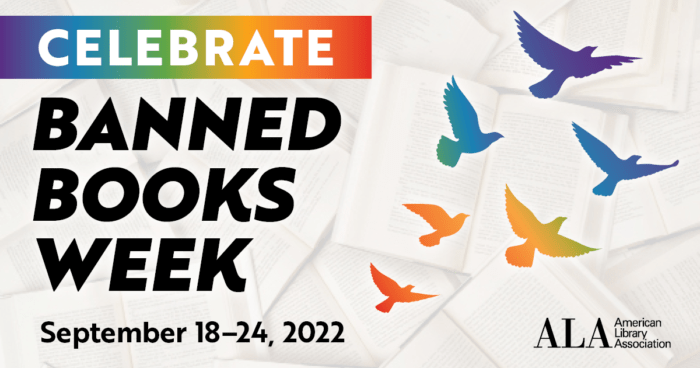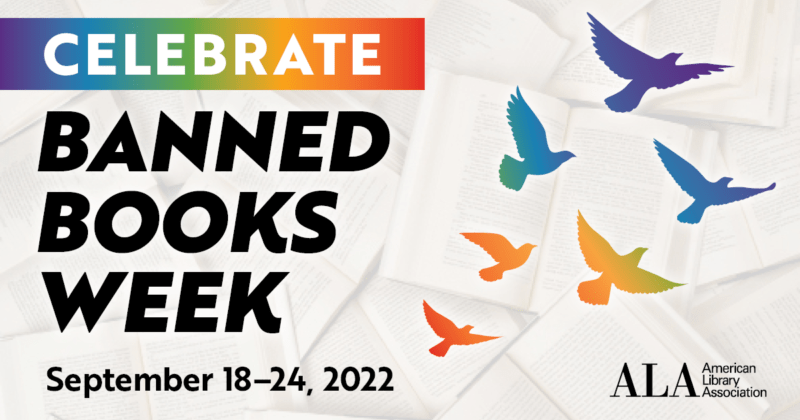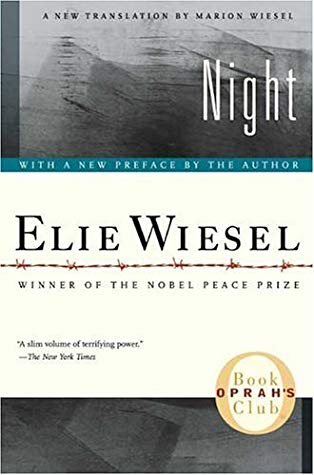As a self proclaimed word nerd and book blogger, it’s no surprise that I celebrate books and reading. If you have forgotten, or, heaven forbid, never embraced the idea that reading is important, let me give you a few things to ponder.
Benefits of reading
First, reading books about communities, places, and times other than what we know helps us learn about and understand other people. Reading can be an especially effective way to explore the world when combined with discussion in a safe place and when led by teachers or educated mentors who can guide discussion, challenge assumptions, and facilitate processing. Studies have shown that reading increases empathy.
When I was a freshman in high school, my English class studied Night by Elie Wiesel . Wiesel’s account of his teenage years at Auschwitz made the reality and tragedy of Nazi concentration camps come alive in a way that my history textbook could not.
One judge championed the power of books to foster empathy in a Virginia court case in 2017. The judge required teens found guilty of painting Swastikas on an historic black schoolhouse to read a book a month for twelve months and write reports on what they learned. The students had to choose from a list of books, including Night by Elie Wiesel, I Know Why the Caged Bird Sings by Maya Angelou, and The Kite Runner by Khaled Hosseini. One of the teens later wrote in a report that he hadn’t understood the significance of swastikas until he read books from the list.
In addition to promoting empathy, reading books helps us explore complicated ideas. The best books examine meaningful themes like love, loss, independence, oppression, death, grief, heroism. John Green’s YA novel Looking for Alaska explores how people from different religious traditions explain and process grief. His novel The Fault in Our Stars follows two teenagers with cancer who are contemplating what matters in life and what happens after death. The Charles Dickens classic A Tale of Two Cities, set during the Reign of Terror of the French Revolution, depicts how long standing oppression undermines humanity and society. Born a Crime, an autobiography by Trevor Noah, depicts the challenges of growing up as a mixed race child in South Africa during the aftermath of apartheid, state sanctioned racism. All of these books helped me broaden my understanding of being human.
Reading and discussing books also promotes critical thinking skills. Readers must learn to differentiate fact from opinion. They must understand the difference between literal and figurative language. And with enough experience, they will learn to perceive the message or question the author has woven into the text for consideration. In a democratic, free society, we need to be able to read about, think about, and discuss ideas. Reading books helps us do that.
Finally, and simply, reading cultivates imagination and offers escape. As a teen, I loved curling up under my covers with a good book to travel away from the tension that plagued my house. The Hobbit, a fantasy adventure by JRR Tolkien, whisked me away to a world characterized by bravery and strength. It was a welcome break from a home troubled by chronic illness and alcoholism.
Why some want to limit reading
For decades, people, often parents, have expressed concern about certain books. You can find detailed information about challenged and banned books at the website of the American Library Association. Concerns about books often center around the age appropriateness of materials. Typical reasons for challenges include profanity, sexual content, religious themes, or violence.
Another reason individuals or groups try to limit access to books is fear that particular titles will normalize behavior viewed by the challengers as unacceptable. For example, groups have targeted books with LGBTQ themes and characters because they don’t want children exposed to sexual behavior and ideas that are “out of the norm” or do not align with their personal or religious beliefs. There seems to be an assumption that if people, particularly children, read something, they will automatically accept and embrace it. This does not align with the idea that reading encourages critical thinking.
On September 16, the ALA released data about book banning so far in 2022. Between January 1 and August 31 this year there were 681 attempts to ban or restrict library resources, and 1,651 unique titles were targeted. These numbers break the records set in 2021. The ALA is particularly concerned because “more than 70 percent of the 681 attempts to restrict library resources targeted multiple titles. In the past, the vast majority of challenges to library resources only sought to remove or restrict a single book.” ALA President Lessa Kananiʻopua Pelayo-Lozada is worried about this trend.
“The unprecedented number of challenges we’re seeing already this year reflects coordinated, national efforts to silence marginalized or historically underrepresented voices and deprive all of us – young people, in particular – of the chance to explore a world beyond the confines of personal experience.”
ALA President Lessa Kananiʻopua Pelayo-Lozada.
The dangers of limiting access to books
I understand there are themes, concepts, or ideas that adults might want to protect children from. I was the mom who told my kids they couldn’t read the later Harry Potter books because I was worried the themes were too dark for my 1st and 3rd graders. (Fifteen years later, my kids still talk about this and why they believe it was unnecessary.) I also hid my copy of Looking for Alaska because I didn’t like the sexual themes or the provocative behavior of the main female character.
What I forgot in those years was that when I was in middle school, I devoured the Ken Follett spy novels I found on my parents’ bookshelf. Those had plenty of sex and violence, and yet, I made it to adulthood without acting like Follett’s lethal and unscrupulous spy, “The Needle”. The fear of immediate indoctrination assumes a small mind; the limiting of access to books promotes small thinking.
The negative consequences of banning books outweigh any desired benefits. Banning books does not promote critical thinking – it eliminates it. We all, especially children, need exposure to ideas to develop a balanced view of the world. The assumption that reading will lead to indoctrination is flawed and fearful. Ironically, forbidding certain books to cultivate a singular cultural narrative is just indoctrination in a different direction.
Also, limiting access to books means that a child who might benefit from reading about people who are different in any way- be it disabled, gay, depressed, anxious, oppressed- will continue to either misunderstand other people, or worse, feel isolated and wrong because they cannot find other people to relate to. Additionally, the uproar about certain titles has left teachers feeling scared and uncertain about what to teach in the classroom. Finally, the trend toward targeting large numbers of books that address a particular theme, for example racism or sexual identity, will affect what titles and topics will be published in the future.
All of these consequences promote silence. Not the discussion of ideas, not the development of empathy, not the ability to critically evaluate. In a country that values freedom, we cannot accept silence and fear. We must do all we can to promote discussion and respectful debate.

Learning more about books
The American Library Association is celebrating Banned Books Week from September 18-24 with the theme “Books unite us. Censorship divides us.” Visit the website or your local library to learn more about what books are being targeted and the effects of banning books.
Why do you think access to books should or should not be limited? Let’s have a discussion!
Thanks for getting nerdy with me!




Ken Follett – Ha! Novice. I remember devouring Jacqueline Susann novels in middle school – we all passed them around, hiding them in our lockers and dare not taking them home!
Julia, I thought you might enjoy looking at a collection of (mostly) photographs I donated to the St. Louis Public Library this year. It’s devoted to the subjects of readers and reading: https://cdm17210.contentdm.oclc.org/digital/collection/readers
Very interesting! I enjoyed browsing the collection and am impressed with it! Thanks for sharing.
Julia
Part of the time, the problem is a breakdown in trust. There are not many who would advocate banning books from sale. All the book-banning I have heard of surrounded public schools and public libraries. When I was young, parents could trust the public libraries and public schools to curate (right word?) their libraries for appropriate content and to even section their library into age groups and steer the younger ones away from the older sections.
But now we have a situation in which some in public education see themselves as the de facto parents and that parents should simply back up and allow the “professionals” to educate and socialize their children. I do not know how much of this actually goes on; the media makes money printing the outrageous. But when parents read articles in which education leaders say that parents have no right to determine what is appropriate for their children and then read of books in school libraries that “normalize” relationships that have been considered abnormal throughout human history, they are rightfully concerned about what their children are being exposed to and taught.
But there is an answer to this that need not involve any acrimonious meetings and demands for book banning. Give parents full access to the curriculum and library. Then parents must become active in their children’s education. By this, I do not mean attending Board Meetings and PTA meetings. Rather, le them take time to ask their kids what they were taught in school that day. Check all the books they are reading and provide counter information as they deem appropriate.
And teach them civility. It is possible to be completely repulsed by someone’s beliefs and/or behavior yet still treat them civilly.
And teach them that there are times when the teacher will be wrong, but she/he is still the teacher and must be treated with respect.
There is no better remedy to darkness than light.
Good article. Thanks.
Hi Joseph! Thanks for contributing to the discussion. I agree – fostering more trust is a great idea, as well as encouraging parents to have discussions with their children about what they see and learn at school. This kind of basic personal interaction, as well as promoting civility and respect, will have the most positive effects on our children and our society. I think parents do have access to curriculum and library contents at schools- perhaps poor communication between institutions and parents feeds the problem.